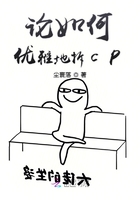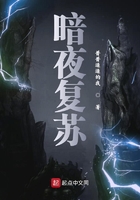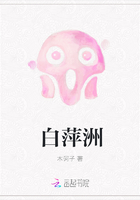In an essay called "The Gospel of Wealth", Andrew Carnegie discussed his views on wealth, the public good, and individualism. He described individualism as "a nobler ideal that man should labor, not for himself alone, but in and for a brotherhood of his fellows, and share with them all in common." Carnegie felt that individuality was important, but should not be taken so far that it separates everyone from each other. Each person should contribute their own ideas that better help the community as a whole.
Another similarity between life and the symphony is that a performer may not always have the melody but will accompany someone who does. Or in another case, a performer will not always have a solo and the chance to be in the spotlight. In life, everybody has their moments of glory although they may go unnoticed like the accompanist. This does not mean, however, that they are any less important than anyone else. The melody does not stay with one instrument for the whole song but moves throughout the orchestra. As in life, everyone eventually has their moment to shine and their chance to be in the spotlight.
When preparing for a concert, the musicians are reminded by their conductor to stagger their breathing. They can, of course, breathe when they need to but they have to try not to breathe at the same time as the person sitting next to them. If everyone breathed at the same time, there would be a noticeable moment of silence in the song. This is yet another example that can be applied to life.
The orchestra continues to play. It moves together as a group yet separately, with each person contributing their own part. Each musician is an active member of the symphony. We more together in life, contributing what we have to offer from day to day as active members in our community. The orchestra plays their last note and the song is over. There is a moment of silence that is broken by the applause of the audience.
观众们都在交谈着。舞台上的表演者正在为表演调试着音乐和乐器。指挥登台后鞠了一个躬,全场一片寂静。他的指挥棒一挥,交响乐随之响起。所有的乐器都发出不同的声音,各个部分的声音混合得相当协调。如果乐器的每一个部分都是一样的,音乐就不会如此激昂。交响乐就是生命的象征,特别是在团队中,多种乐器交织在一起,才会演奏出唯一而独特的声音。我们的生命和所居住的世界也是如此。每个人都带来他们的不同,而这种不同又影响着其他人。
交响乐队是由许多种类的铜乐器、木管乐器、打击乐器和弦乐器组成的。每一种乐器都有着独特的声音,但是当它们一起演奏时,又会产生互补的效果。整个世界就像交响乐和交响乐器一样,由许多种族和文化构成。他们拥有各自的不同点,却又在不经意间彼此影响着。比如,你在街上散步,为了不碰到某人,你会绕着他走。事实上,当你向里挪动时,他们正影响着你的行为。
每个人都是交响乐中重要的一部分。每一位演奏者都有各自的演奏任务。这些部分都可以演奏出自己的音乐,但是与乐队中的其他部分合奏时,他们就会产生不同的效果。他们混合在一起就成为音乐的和谐部分。换言之,你能听到每一个人所作出的贡献,也能听到每一位演奏者是怎样共同合作的。在生活中,每一个人都拥有各自的特长。当他们共同合作时,就更强调了他们每个人的独特能力。一位外科医生是很有能力的,但是,如果他加入医疗组,在别人的协助下,他拯救生命的能力就能更好地发挥了。
在一篇名为《健康福音书》的散文中,安德鲁·卡耐基论述了他在健康、公共财产以及个人主义方面的观点。他将个人主义描述为“一个人不应该只为自己劳作,而要为他的兄弟姐妹而活,并与他们分享一切,这是一种高尚的理想”。卡耐基认为个性是非常重要的,但也不能与他人太过偏离。每个人都应该贡献自己的观点,以便更好地帮助整个社会。
生活和交响乐之间的另一点相似之处在于,演奏者也许不会一直奏出悦耳的音调,但他可以为拥有悦耳音调的人伴奏。或者还有另一方面,演奏者不会一直表演独奏,也不会一直有作为焦点的机会。在生命中,每个人都有其光荣的时刻,即使他们或许会像伴奏者那样被人忽视。但这也并不意味着他们不比别人重要。整首歌曲的悦耳音调不会只停留在一个乐器上,而是由整个乐队演奏出来的。生活中亦是如此,每个人最终都会有发光的时刻,也会有成为聚焦的机会。
当一场音乐会正在准备时,指挥会提醒音乐家交错着呼吸。在需要呼吸的时候,音乐家们当然可以呼吸,但是不可以与邻座的人在同一时间呼吸。如果大家同时呼吸,那么他们的呼吸声就会在音乐中的寂静时刻凸现出来。
乐队继续演奏着。他们虽然是分离的个体,但又组合成一个团队。每一位音乐家都是交响乐中的积极分子。在生活中,我们更加团结,作为这个团体中的积极分子,我们每天贡献着自己能够做到的一切。乐队演奏完他们乐曲中的最后篇章,音乐结束了。观众们雷鸣般的掌声打破了片刻的寂静。
生命是一首交响乐,只有多种乐器的相互交织,才可能奏出独特的声音。生活中每个人都是独立的音符,而只有人们相互配合才能奏出美妙的曲子。假如你是一个特别的音符,那么与人合作,会使你的独特性得到完美展现;假如你感觉自己只是一个普通音符,那么通过配合,你将发现自己独特的价值。
auditorium [,:di't:rim] n. 听众席;观众席;会堂;礼堂
Last night, the 2009 Academy Awards were presented at the Shrine
Auditorium in Los Angeles, the USA.
昨晚,2009年的奥斯卡奖的颁奖仪式在美国洛杉矶的神殿大会堂举行。
shuffle ['fl] v. 拖着(脚)走;跳(曳步舞)
The audience began to shuffle (their feet) impatiently.
观众已经不耐烦了,渐渐跺起脚来。
symphony ['simfni] n. 交响乐;交响曲
Love is a symphony in which the sweetest notes are kisses.
爱情是一首交响曲,其中最美妙的音符是吻。
percussion [p'kn] n. 打击乐器
In an orchestra, people who play percussion instruments sit at the back.
在管弦乐队中,演奏打击乐器的人会坐在后面。
交响乐就是生命的象征,特别是在团队中,多种乐器交织在一起,才会演奏出唯一而独特的声音。
一个人不应该只为自己劳作,而要为他的兄弟姐妹而活,并与他们分享一切,这是一种高尚的理想。
生活中亦是如此,每个人最终都会有发光的时刻,也会有成为聚焦的机会。
...and the parts they play blend and harmonize with one another.
harmonize with:协调
...for example, and move out of the way so as not to bump into someone...
bump into:偶然碰到;撞见
成功的DNA密码
The DNA of Success
厄尔·曼 / Earl Mann
Today we' re going to talk about DNA: that thing that makes you who you are, that thing that makes you who you can become, that thing that is coded into your essence and determines what your capacity is, what your limits are!Your DNA is your "Decisions and Actions." That' s what determines who you are!
If you do enough research and listen to enough scientists on human potential, they will tell you that you are precisely where you are in life because of the decisions and actions that you' ve taken up to this point. Understanding this is critical to going forward with success. If you are today the result of all the decisions and actions up to this point, then who you are tomorrow will be the result of all the decisions and actions you take between now and then. So, understanding that, getting your hands and mind around this DNA, is the key. Every decision you make, every action you take is either in support of or in opposition to your achievement of whatever you have determined as your own individual success.















